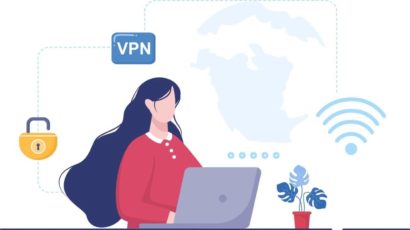The world’s best-known digital censorship device is probably the Great Firewall of China. However, other jurisdictions are as restrictive as China. They just don’t get the bad press they deserve. The Kingdom of Saudi Arabia is probably one of those. The government filters the internet content very strictly. Religion, the royal family, and politics are national taboo, and you must tread carefully around them. Suppose you want an idea of the “not free” score in the Freedomhouse list. In that case, other countries in that category include Afghanistan, Angola, Bahrain, Cambodia, China, Cuba, Iran, and Iraq.
The country’s big-brotherish agents also pay attention to social media content and posts. Voice over IP calls, BitTorrent, and other P2P networks are restricted. The government allows for Netflix but in a thoroughly censored version.
The usual internet that includes torrents, the entire Netflix catalog, phone calls on Skype or WhatsApp, free news about politics, and religious neutrality, doesn’t exist in Saudi Arabia.
So if you need to visit the country for business or vacation, or even move there, what can you do to ensure you’ll be able to have the internet you already know and love? The answer is: to get a top-notch VPN service that can bypass Saudi restrictions.
And why is a VPN the solution to this problem? Let us answer you.
A VPN performs two fundamental operations on your internet traffic. The first is full encryption, and the second is routing through a server that will mask your IP address so nobody can figure out your actual physical location and other IP-related data. Any service that does these two things correctly deserves the name of VPN. However, the best VPNs in the market will do much more for you, giving you many additional features that significantly enhance your security and overall internet experience.
So the VPN solves the censorship problem in Saudi Arabia because it encrypts everything. The ciphering guarantees that no third party can look at your data stream and make sense of it. Encryption turns a data stream into white noise. So everything you do will be beyond the government’s eyes. Then, the IP address you get from your VPN will tell a different location of yours to the servers you connect. Consequently, they will serve you based on that knowledge. So, for example, if you click through a VPN server in Canada, you can do everything that Canadian users do regularly.
So, let us show you how you can adopt a good VPN service in Saudi Arabia that will enable you to use the internet as if no censorship existed.
How to use a VPN in Saudi Arabia – Quick steps
VPNs are legal for Saudi internet users. However, while the government doesn’t penalize VPNs, you could still be in trouble if you use them to do the things they don’t want you to do.
If you’re one of those users in Saudi Arabia (or will be there for whatever reason) and want the Kingdom’s government to mind its own business where your internet life is concerned, you can use a VPN to achieve that goal. Here’s what you do:
- Choose a VPN from our top five list. Our favorite for this task is ExpressVPN, but any of our picks will do.
- Find the software that your VPN provides for your computer or device. Download and then install it.
Launch your VPN app. - Log in using your credentials.
- Pick a VPN server located anywhere in Saudi Arabia.
- Welcome back to the digital world of internet freedom!
Top Saudi Arabia VPNs – Quick list
So what are those five VPNs that will make the magic happen for you, we hear you ask? We will review them all in detail further on in this article. But if you’re in a rush and want the gist, here’s the quick list:
- ExpressVPN. It’s the biggest name in the VPN market for excellent reasons. This is the top VPN that will fix all your Saudi digital problems.
- NordVPN. A VPN with traffic obfuscation, double VPN servers, fast connections, a kill switch, and many more features.
- Private Internet Access (PIA). The largest VPN network in the world will spoil you for choices as you look for a good server from Saudi Arabia.
- Surfshark. The ultimate VPN regarding value for money offers a service beyond the meager prices it collects.
- PrivateVPN. A small VPN network but a stealth VPN feature that perfectly fits a Saudi user’s needs.
The best five VPNs for the Kingdom of Saudi Arabia – Detailed list
Our staff dug deep into their considerable knowledge of the VPN world to find the best five VPNs for Saudi Arabian users. They came up with five options that have the following common characteristics:
- Keep no logs of any kind.
- Provide solid connections.
- Use encryption that is at least on par with the market standards.
- Have an automatic kill switch.
- Have an extensive server network that covers the globe.
- Support all the primary platforms and operating systems.
So here are the chosen ones!
1. ExpressVPN

A trusted VPN service that always protects your internet privacy with stealth browsing and obfuscation features. Works great to stay out of the radar in Saudi Arabia.
Pros
- Works well in Saudi Arabia
- Fast-speed servers
- Unblocks geo-restricted content
Cons
- Pricey subscription
ExpressVPN is the most costly VPN on our list. However, it’s also the one with the best reputation, thoroughly earned by being the leading VPN in the industry for an extended period. And the best VPN you can use if you’re in Saudi Arabia.
The headquarters is in the British Virgin Islands, a privacy-friendly jurisdiction. That makes it much easier for the company to implement privacy and anonymity-friendly policies because their domestic government isn’t pressing them to do otherwise. So, for example, ExpressVPN keeps no logs of any kind, which is easier to do in a country with no mandatory data retention laws.
This vendor accepts Bitcoin as payment. That means you can pay anonymously and have an ExpressVPN account working while you remain a non-entity on the internet.
ExpressVPN has adopted WireGuard as an option among its VPN tunneling protocols. That is quite the feat because this protocol, being the most advanced and efficient so far, has not reached a stage where it can be released as a commercial product. The protocol allows ExpressVPN (and the handful of other VPNs that use it) to give users connections that are much more reliable and fast than the OpenVPN protocol allows –and OpenVPN remains the golden standard in its software category.
Encryption is AES-256, military-grade, and unbreakable by even the most advanced computers. Furthermore, there’s a kill switch available, which guarantees that you will never broadcast an encrypted data packet to the open internet that could give away your activities or accurate IP address. In addition, their IP masking avoids DNS or IP leaks, which is not something every VPN does.
The server network spans 94 countries and includes more than three thousand RAM-only servers. So wherever you are in the world, a server is always physically near you that can help you bypass any block in your domestic internet service. And the RAM-only servers, which have no magnetic hard drives, can’t possibly keep any logs because the whole disk is wiped away with every reboot.
The apps cover the primary systems like Android, iOS, macOS, and Windows. But there are also apps for devices and systems that most other VPNs do not support, such as Amazon Firestick devices, Android TVs, and Linux.
There are browser extensions for Google Chrome, Microsoft Edge, and Mozilla Firefox. In addition, this vendor offers browser plugins that are different from the rest because they are interfaces that allow you to manage the full VPN service –the plugins in other companies only provide web protection.
The customer service is also excellent. Fast and always there for you, staffed with friendly agents who know their business well.
2. NordVPN

A resilient VPN with task-based optimized servers, separate obfuscation feature to avoid VPN detection, and Double VPN. An amazing option to get a Saudi Arabia VPN server address.
Pros
- Fast speed connectivity on all servers
- Supports server obfuscation
- Evades content restrictions in Saudi Arabia
Cons
- Overwhelming options
NordVPN is one of the most advanced VPNs. The service is comprehensive, and it protects your internet activities, whatever they are, and wherever you are, including in Saudi Arabia.
NordVPN is based in Panama, one of the world’s privacy heavens. That facilitates NordVPN’s job of minding your privacy and anonymity. It will keep you safe without collecting any data from you. In addition, you won’t have to provide any identifiable data if you pay with Bitcoin or other cryptocurrencies.
Every server in the network provides robust and fast connections –NordVPN also has harnessed the power of WireGuard in a proprietary protocol it calls NordLynx. Encryption is AES 256.
NordVPN gives you the option of using an obfuscated server. This option makes all of your traffic look like HTTPS. It prevents any snooper from knowing what you’re doing online. Whether torrenting, streaming a movie, placing a Skype call, or anything else, it goes to your VPN disguised as HTTPS. It is a crucial feature in heavily censored countries because it reduces the reasons for Big Brother to notice you –HTTPS is, after all, the rule rather than the exception with online traffic.
There are also many “Double VPN” servers. Using them means that your traffic goes through two servers in the network, thus getting a double encryption layer and an extra rerouting process. This level of protection will secure at insane levels –but if you’re doing things known to rub the Saudi government in the wrong way, it could be worth it. Of course, the extra encryption and routing take time, so you will have to sacrifice a bit of your speed if you choose to use this option.
There are 5200+ servers in 60 countries, so you will enjoy plenty of choices to eliminate domestic censorship in Saudi Arabia.
The servers in the NordVPN network are all RAM-only, like those in ExpressVPN. That makes for insanely fast servers that are physically incapable of saving logs, so they’re an advantage from the user’s point of view, whether your priority is functionality or privacy.
The network accepts six concurrent connections for every account. If you use your NordVPN service from your home router, there’s no limit because your router counts as a single connection, regardless of the number of devices it’s serving.
The customer service is excellent at NordVPN too. It offers you many research resources as well as a 24/7 live chat.
3. Private Internet Access (PIA)

This user-friendly VPN, despite US-based location, ensures thorough no-logs policy. So, you can use PIA VPN with trust even in Saudi Arabia and alike.
Pros
- Good value for money
- Supports all major platforms
- Works well in KSA
Cons
- Inconsistent speeds
The server fleet at Private Internet Access (PIA) is its most impressive feature. It includes 80 countries and more than 23,000 servers globally, including a few nodes within the Saudi borders.
Encryption is AES-256 bit, which is government-grade. So the servers are safe against every type of DNS and IP leak, and it also has a kill switch. It can block ads, trackers, and other means of malware proliferation.
Your privacy is protected by the company’s no-logs policy, which has had to face some heat from the local law enforcement, with all success. It also accepts some cryptocurrency as payment, allowing you to keep your personal data away from the VPN’s servers.
Speeds are not the best feature in PIA, but they are still good enough for most of the activities you’ll need to do in Saudi Arabia.
There are Android, Linux, AndroidTV, iOS, macOS, and Windows apps. The browser extensions cover Google Chrome and Opera, and you can configure your router to connect straight to the PIA network.
Your account is suitable for ten concurrent connections.
If PIA can fall short in functionality compared to other VPNs on this list, its customer service is as good as any other.
4. Surfshark

The most affordable and user-friendly VPN app that offers premium privacy features to hide your internet traffic and avoid web tracking in KSA boundaries.
Pros
- Affordable subscription
- Supports stealth browsing
- Unblocks KSA content abroad
Cons
- Unstable speeds with distant servers
Surfshark will give you a secure window to the digital world beyond Saudi Arabia with total privacy (it keeps no logs) at a price that will knock your socks off.
Your online protection comes courtesy of the platform’s military-grade AES-256 encryption, a kill switch, and a server network that can prevent leaks of any type. In addition, the optional MultiHop servers add extra layers of rerouting and encryption to your traffic. Moreover, you get ad-blocking, tracker blocking, malware protection, and phishing vigilance for the price of your account. Obfuscated traffic is also on offer under the name of “NoBorders.”
Surfshark will let you choose a server among the 3,200 ones they have in over 65 countries. The server network alone attests to the company’s commitment to rapid growth guided by excellence –the server number has doubled in about a year. The subsequent combination of the network and the high-quality service will allow you to unblock more than 30 Netflix catalogs from Saudi Arabia.
One of Surshark’s priorities is to give every user the best cost-efficiency in the market. They meet this goal by allowing unlimited simultaneous connections to the network.
Surfshark is often referred to as a “budget VPN.” That is because the fees for the service are indeed very budget-friendly. However, it would be best if you didn’t let that tag deceive you. This is one of the best VPNs money can buy. It’s just a fortunate thing that you can buy it for such a small sum.
5. PrivateVPN

Another decent VPN to bypass Saudi Arabia content geo-restrictions and stream internet without fear.
Pros
- Impressive speeds on all servers
- User-friendly apps
- Performs well within KSA boundaries
Cons
- Few servers
Unlike all the other entries in our list, PrivateVPN has a small-sized server network. However, size isn’t everything, and PrivateVPN is the perfect example.
PrivateVPN includes the Stealth VPN feature, the same service that other vendors call obfuscation (except Surfshark, which calls it NoBorders). This feature is good enough to bypass the Great Firewall of China, according to several reports from PrivateVPN users. So make no mistake, this powerful VPN will give you everything you need in Saudi Arabia, regardless of the server count.
So the trick is not the number of servers. Instead, the trick is that every server in the network is excellent. Each one will give you high speeds and reliable connections and will evade any geo-block you throw at it. So yeah, it’s good to be great. But it’s still greater to be good.
Encryption is AES-256 so that you can see a pattern: it’s the standard in the VPN-verse (as it is in the military and intelligence communities of the world).
If you’re on the crypto wagon, your privacy is enhanced by paying with digital tokens, so you don’t have to give away any personal information to the vendor.
PrivateVPN supports the big four platforms, iOS, macOS, Windows, and Android. But nothing more exotic than them. However, some routers can handle this VPN’s network directly. Your account will be suitable for six simultaneous connections, and the customer service is pretty good.
A brief VPN lexicon
Let’s go through some terms we use in VPN jargon to ensure you can follow us easily.
- Auto-reconnect is a feature that automatically gets you back into the VPN network if your connection fails.
- Obfuscation is a process that works with the OpenVPN protocol explicitly designed to bypass internet restrictions without revealing that you’re using a VPN.
- DNS leak protection. DNS queries are what make the web work. Unfortunately, your browser can’t connect to domains as you know them (e.g., google.com). Instead, it needs an IP address. DNS is the directory that will tell your browser the address for the domain name you typed or pasted. Unfortunately, DNS queries can leak your proper IP address. A good VPN will prevent that leak.
- IPv6 leak protection. The IPv6 is the latest standard for IP addresses. It was introduced, so the internet doesn’t run out of numbers to assign. Yet, the standard has not gained adoption as quickly as expected –although it’s inevitable. Hence there are many compatibility problems between the v4 and the v6 standards, and these gaps can create IP address leaks too. But, again, a top-notch VPN knows this can happen and is ready to deal with it correctly.
- Kill switch. This feature monitors your connection to the VPN network constantly. The kill switch completely disconnects you from the internet if the link is lost. This measure ensures that your device never issues a data packet into an open internet connection that could give away your activities or IP address.
How to choose the best VPNs for Saudi Arabia?
Saudi Arabia is one of the most repressive countries in the world at every level, including the internet. Therefore, while we consider VPNs to be essential tools for every proficient internet user in the world, if you are in Saudi Arabia, the VPN’s importance is much greater. Without one, your options on the internet will become severely limited.
The thing is that every VPN vendor out there has excellent publicity, and they all talk a big game. In reality, the VPNs that can genuinely solve the most complicated problems on the internet (bypassing China’s restrictions, for instance) are few.
But how can you tell them apart from the rest? After all, evaluating VPNs is a process that needs time, energy, resources, the correct tools, and a degree of expertise. It would be best if you didn’t have to do that work. It’s our job to do that so you can concentrate on more productive work.
A quick look at our methodology
So the same question remains: how did we tell the best VPNs for Saudi Arabia from the rest? We paid attention to the following features:
- Speeds. Let’s face it, having a good internet experience has always been about speed, even back in the days of dial-up. With VPNs, speeds are even more critical. A VPN will encrypt and reroute all your traffic. Of course, that takes time, and time is speed. But a good VPN should be so efficient that you can’t tell you’re losing any baseline speeds unless you measure it carefully.
- Server network. A server network with plenty of nodes in most of the internet’s key countries is crucial for you to unblock the web’s most coveted content. In this case, we didn’t pay much attention to servers in Saudi Arabia because the point is to experience the internet as if you were away from the country, not within. The networks from our picks go from a few hundred to tens of thousand servers. However, don’t take this as a selection criterion. Every network in our top five VPNs is extensive enough for what you will need from Saudi Arabia.
- Value. Most VPNs out there are not worth your time or money. That’s harsh but true. The VPNs we chose will deliver value for every cent you spend on them.
- Friendliness. When VPNs first appeared, they were geeky toys for the world’s most paranoid users. But the times have changed. Nowadays, a good VPN is indispensable for any security-aware user. Therefore, any top-notch VPN should be easy for users of all types.
- Privacy and security. Since this is the primary use case for VPNs (or at least the original one), you would think that every paid VPN can at least guarantee your privacy and security, right? Wrong. As stated earlier, many VPNs in the market can’t even give you that much service correctly. Our chosen ones do.
- Streaming. The Covid-19 pandemic created a massive demand for digital entertainment at home. Thus, unblocking the best geo-restricted video catalogs became the new killer app for VPNs. So we made sure to include VPNs that can deliver that for you.
Should I use a free VPN if I’m using the internet in Saudi Arabia?

We are dead against our readers using free VPNs from anywhere in the world or for any purpose. And if we’re talking about using the internet in Saudi Arabia, then free VPNs become an even worse option.
While VPNs are legal in Saudi Arabia, the chances are that you want to use one because the thing or things you intend to do will not get you a medal from the Saudi government. On the contrary, they could get you fined or jailed. In this context, keeping the Kingdom’s government nose away from you is paramount, and free VPNs won’t help you. Instead, they could do the Saudi dirty work for them.
The only reason to seriously consider using a free VPN is to ignore their business model. Free VPNs won’t charge you a fee, but that doesn’t mean they are costless. You will pay for the service (which is always crappy, anyway) with your privacy. Free VPNs are businesses, and they are online to turn a profit. They do that by keeping detailed user logs that they can later sell to data miners. These data miners could be relatively harmless, like advertisers. But the Saudi government could also buy these logs if they’re willing to pay for them –and money is never a problem in the Saudi system.
So if you choose a free VPN, you could find that the service that was supposed to protect you turned on you. And this is not a conspiracy theory. Read the corporate policies of the free VPN you had in mind, and you’ll find everything there. It will tell you they will collect your data and what they will do with it.
Our list of the top VPNs for Saudi Arabia includes options that can fit into any budget. There is no reason for you to risk your security with a free VPN.
Why do I need a VPN in Saudi Arabia?
The Saudi Arabian government takes censorship seriously. Autocratic theocracies are not known for promoting freedom of any type, so the country is among the most repressive ones in the world, and its stance on internet content reflects that reality. Anything related to religion, politics, and the Saudi royal family is closely examined and subject to filters and blocks.
Social media platforms are allowed, but the government has restricted their reach through bandwidth limitations. For instance, in 2016, Telegram users found they couldn’t share files or pictures. In addition, until recently, VoIP calls were banned. The government lifted the ban recently, but it was clear about its intention to keep a close eye on all those calls.
Anything on the internet that is not undoubtedly pro-Islamic or deemed illegal or offensive to the country’s values is blocked. Gambling sites and file sharing sites are banned as well.
Human rights organizations and social media pages owned by local political organizations are also blocked.
As you can see, if you’re in Saudi Arabia, your internet freedoms are curtailed in several ways. First, you could have your bandwidth throttled or worse if you engage in those activities that the government deems anti-Saudi. You can avoid all that hassle if you adopt a good VPN service in Saudi Arabia. And that is why you should have a VPN when you’re in the country.
Be proactive: install your VPN app before you arrive in the Kingdom
Yes, VPNs are legal in Saudi Arabia. However, that doesn’t mean that the government is crazy about them. The Saudi authorities know how VPNs, Tor, and other censorship bypassing tools beat their restrictions. Consequently, many VPN providers are blocked, as are the Tor browser website and other similar tools.
So, if you know you’ll spend some time in Saudi Arabia, ensure that every device you use already has all the software you need to remain free.
Your privacy in Saudi Arabia – keep it safe
So you’re there. You’re in Saudi Arabia after planning your trip carefully. You installed your VPN apps before leaving home and are ready to rock. Adopt the following practices:
- Always have your VPN app fired up, and ensure you’re always protected.
- Choose OpenVPN as your protocol. It’s not the fastest one, but it’s the safest.
- Ensure your kill switch is online and working.
- If your provider has obfuscated servers, use them.
And you should also think about your anonymity and protect it through these measures:
- Use Tor Browser to browse the web.
- Do not use public WiFi hotspots.
- Use secure email providers (You may read this guide on the best secure email providers to learn more about these services.)
Are VPNs legal in Saudi Arabia?
Yes, VPNs are legal in Saudi Arabia. But remember that your VPN will enable you to do things the government considers illegal. So if you get caught posting anything that the Saudis consider dangerous or offensive, you’ll be in trouble.
Digital security is a much more sensitive issue in Saudi Arabia than most of the rest of the globe. That is why you must ensure that you have a VPN while you’re there and that your VPN is effective. The five options listed here will serve you well.
What else is a VPN suitable for?
VPNs came to life to ensure privacy, security, and anonymity for a user’s online activities. However, the mechanics inherent to a VPN network make it suitable to offer other advantages.
1. Change online location
A VPN is your window to the world, digitally speaking. Whenever you pick a server in the network, that server will let you experience the internet as if you were physically there, in that server’s country. So, suppose any webpage or service is blocked in Saudi Arabia but not Italy, and you pick an Italian server. In that case, you’ll be able to do everything typical Italian users can.
2. Prevent bandwidth throttling
A VPN also keeps your ISP’s nose away from your digital life. Some ISPs pay close attention to their clients’ activities. When they find that they use a lot of bandwidth on something (video streaming, for example), they will curtail the bandwidth they let you use for that specific task. This is called “throttling.”
Since the VPN encrypts all your traffic, your ISP can’t see what you’re doing. Therefore it can’t throttle your account. If your ISP has already curtailed your bandwidth for whatever activity you like the most, your VPN will get you back to your full speed.
3. Ensures protection on public WiFis
The last advantage we want to mention goes back to security. Public WiFi hotspots are very popular with users. They’re convenient; they keep you online when you’re on the go. But here’s the catch: if there’s a group of specific users that love WiFi hotspots more than you, it’s hackers. In a WiFi hotspot, tens of internet users broadcast their information into the open air without any protection. Hackers know this, love it, and are there buttering their bread with all that traffic that’s up for grabs. A VPN will spoil your friendly neighborhood hacker’s picnic because the encryption will ruin his chances of intercepting your information.
How to get a Saudi Arabian IP address
Maybe the vital thing for you is not to evade Saudi censorship from within. Some users need an internet connection that lets them experience the internet as if they were inside the Saudi Kingdom.
This is the opposite thing of evading Saudi censorship. Acquiring a Saudi Arabian IP number will take you back into the heavily censored internet environment of the Kingdom. But there are good reasons to do that if you have business in the country and you need access to services that will not serve foreign connections.
Fortunately, having a Saudi IP address is a simple task. You do this:
- First, you need the correct VPN. The “correct” VPN has servers based in Saudi Arabia. Unfortunately, the local digital environment gives most VPN vendors little reason to have servers there. Consequently, only one VPN on our list has servers in the Kingdom: PIA (Private Internet Access). In other words: your first step is to get a PIA account.
- Install the VPN app on the device you want to have a Saudi IP address.
- Launch the app. Use your credentials to log in.
- Pick a server in Saudi Arabia to join the VPN network.
- There you go! You’re in Saudi Arabia now, as far as the internet is concerned!
How can I blog anonymously in KSA?
Raif Badawi is a Saudi citizen known for blogging about freedom of speech in Saudi Arabia and raising issues about the country’s leadership. He was arrested five years ago, and he’s still doing time. His family had to flee to Canada.
Abu Sin published a few videos in which he was chatting with a female Californian friend. The videos went viral. He went to jail. The Saudi police said he was “unethical.”
These two cases are not even the worse we could tell you. First, there’s the suspicion that the Saudi agencies have killed rebellious journalists outside the country.
The Saudi law enforcement agencies are always surveilling for deviations from the state-sanctioned ideas and policies. Any transgressor of the peculiar Islamic devotion that the KSA supposedly honors will have to pay a high price.
So are you planning to become an activist in Saudi Arabia via blogs or social media? Unfortunately, Privacysavvy.com doesn’t encourage readers to go ahead and break the laws of the country they are in. On the contrary. We aim to help all our readers to remain safe. That has much to do with their technology, but the behavior is just as important.
Whatever activities you intend to carry out in Saudi Arabia, you should do your homework first. Please find out how the government regards them, the legal antecedents, and the ramifications of doing those things, and find a local lawyer to advise you if you can.
So the answer to the question is yes, you can blog anonymously from Saudi Arabia. But a VPN would be the first step; you must use all kinds of anonymization technologies to succeed. Describing the process that will enable you to blog anonymously from such a repressive environment requires another article. So for now, all we can say to you is: yes, you could, but you shouldn’t even try it if your technological expertise is not good enough.
Will the internet ever be open as intended in Saudi Arabia?
As the current year began, the internet penetration rate in Saudi Arabia was 97.9% of the total population. So despite the restrictions, Saudi Arabia is one of the world’s most digitally connected countries.
The unfortunate fact about Saudi users is that their access to the internet is severely limited. Saudi Arabia has the region’s most heavily censored internet access, including Israel, Lebanon, Iran, and Iraq.
But, since it’s one of the world’s wealthiest governments, spending money on the best and most sophisticated means to censor the internet is not a problem. On the contrary, an approach that is clear in countries like Saudi Arabia, Qatar, the UAE, and similar despotic but rich countries is that they can solve anything if they throw enough money at it.
Some of the restrictions are very clear –the royal family and anti-Islamic content. But others are subjective enough that you can never know where you stand.
And things are not improving. For example, in 2014, a new anti-terrorism law resulted in greater online surveillance — ironically enough, it did nothing to reduce Saudi terrorism abroad.
So, is the internet going to be free in Saudi Arabia? We’re not a political website, but it’s safe to say this won’t happen during our lifetimes. As long as the royal family rules the country, so heavily influenced by a radical Islamic sect that even the rest of the Islamic world deems outrageous, there’s no hope at all for positive change in the country.
Of course, sooner or later, the oil has to run out. With it, the steady flow of cash that supports the regime will go dry too. But these things take time, and it wouldn’t be wise for anybody to hold their breath while it happens.
If you’re hoping for Saudi Arabia to adopt Western liberal values, remember this: this is a country not in the west, not a republic, not free, and not liberal. Moreover, there is nothing in this country’s history to support such a wish.
So no. The internet will not become free in Saudi Arabia any time soon. It’s a doubtful proposition, even in the longer perspective.
Conclusion
Online media freedom is not a thing in Saudi Arabia. A lot of things are restricted. Many more are not restricted but heavily surveilled, and posting something wrong will cause you a significant problem.
Fortunately, you can recover a free internet experience from Saudi Arabia with the help of a premium VPN. You can even do the opposite thing if you’re so inclined.
If you must go to Saudi Arabia for whatever reason, you must remember that it’s a different world, the internet included, and you must be ready to deal with it. So have your VPN chosen and pre-installed on all your devices, and never go online without it.
Remember: staying safe online is the top priority everywhere. And in Saudi Arabia, this is a more complicated goal to achieve, which means you need to be extra careful.
However, if you choose one of our top five VPNs for Saudi Arabia in 2022, which can keep you safe and accessible even in China, we’re sure that you’ll be able to succeed in that objective we all want most online: staying safe.
FAQs
The Saudi ban on VoIP services was lifted in 2017, so using this kind of service is not perfectly legal. However, the law that made it legal was very clear about the government’s intention and rights to keep those calls under scrutiny. So do not get confused. “Legal” and “private” or “safe” are not equivalent concepts. If you have VoIP interactions within the Kingdom, you must use a VPN.
VPNs are legal in Saudi Arabia, but that doesn’t mean that the government is crazy about them. The opposite is accurate because it knows they can render their censorship system void. Consequently, the government keeps many VPN websites inaccessible from within the country. Your best move is to be proactive and install your VPN apps before arriving in Saudi Arabia.
Yes, you can. You’ll probably need to buy a new SIM card from a domestic vendor unless your current carrier has service from the Kingdom. Remember that buying SIM cards in this country is not like buying cigarettes. First, you have to give out your fingerprints and provide identification.






